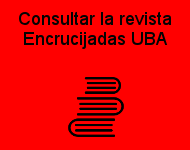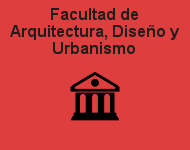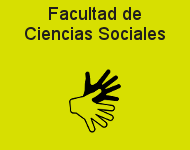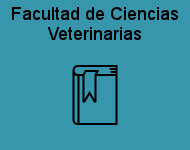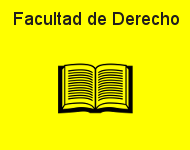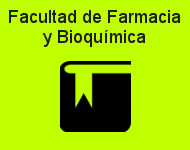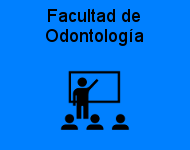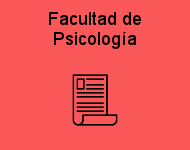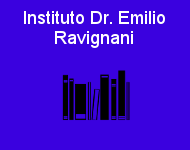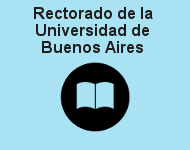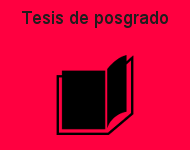Among Lacan and Benjamin: second death as an issue of redemption. Survival [Nachleben] and historical experience.
Fuks, Ludmila
En:
Cuadernos de filosofía; Núm. 73 (2019); 67-77
Editor:
Universidad de Buenos Aires. Facultad de Filosofía y Letras. Instituto de Filosofía Dr. Alejandro Korn
Fecha:
2020-12-28
Tipo de documento:
info:eu-repo/semantics/article
info:eu-repo/semantics/publishedVersion
info:eu-repo/semantics/publishedVersion
Formato:
application/pdf
Idioma:
spa
Temas:
Lacan - Benjamin - second death - redemption - simbolic death - Nachleben - Erfahrung - Lacan - Benjamin - Segunda muerte - redención - muerte simbólica - Nachleben - Erfahrung
Contenido:
In thesis VI of Walter Benjamin’s On the Concept of History (1940), we find the sentence of danger in which the dead are, which we can think of as a threat of a second death, or symbolic death of the oppressed tradition of which the historiographer has to be alert. Now, if there is a second death it is because there is a life after natural death, that is a survival [Nachleben] of the past in the present. This survival, in the context of the theses of 1940, is possible to weave it with the notions of historical experience [Erfahrung] and the transmission thereof. Faced with the danger of the absolute disappearance of what has been truncated, the German author exposes the need to save it, that is, to carry out a redemption, a remembrance. In this sense, redemption would operate as a second chance, or second instance, of those who have already had a natural death, and who therefore survive, are in their "over-life", which is on the verge of disappearing. Redemption, in these terms, is reconfigured as a form of resistance, then, against the possible annihilation that would bury definitively those signifiers, those memories. Here we will essay thinking this possibles intersections between the benjaminians notions of survival, historic experience and redemption, and the lacanian notion of second death, for being able to think the duality of natural and simbolic death and life, the failed of natural death -the possibiliy of redemption that allows- and the absolut and irreversible character of second death.
En la tesis VI de Sobre el concepto de historia (1940) de Walter Benjamin nos encontramos con la sentencia de peligro en que se encuentran los muertos, que podemos pensar como amenaza de una segunda muerte, o muerte simbólica de la tradición oprimida de la cual el historiógrafo tiene que estar alerta. Ahora bien, si hay una segunda muerte es porque hay una vida después de la muerte natural, es decir una pervivencia [Nachleben] del pasado en el presente. Esta pervivencia, en el contexto de las tesis de 1940, es posible hilarla con las nociones de experiencia [Erfahrung] histórica y la transmisión de la misma. Frente al peligro de desaparición absoluta de aquello que ha quedado trunco, el autor alemán expone la necesariedad de salvarlo, es decir de realizar una redención, una rememoración. En este sentido, la redención operaría como segunda chance, o segunda instancia, de aquellos que ya han tenido una muerte natural, y que por tanto perviven, se encuentran en su “sobre-vida”, que se encuentra al borde de desaparecer. La redención, en estos términos, se reconfigura como una forma de resistencia, entonces, frente al posible aniquilamiento que enterraría definitivamente aquellos significantes, aquellas memorias. El ensayo que aquí llevaremos a cabo será pensar los posibles cruces entre las nociones benjaminianas de pervivencia, experiencia histórica y redención, y la noción lacaniana de segunda muerte, para así pensar entre ambos autores la dualidad de la muerte y la vida en tanto natural y simbólica (o espectral), lo fallado de la muerte natural –las remanencias y posibilidades de redención que deja- y lo absoluto e irreversible de la segunda muerte.
En la tesis VI de Sobre el concepto de historia (1940) de Walter Benjamin nos encontramos con la sentencia de peligro en que se encuentran los muertos, que podemos pensar como amenaza de una segunda muerte, o muerte simbólica de la tradición oprimida de la cual el historiógrafo tiene que estar alerta. Ahora bien, si hay una segunda muerte es porque hay una vida después de la muerte natural, es decir una pervivencia [Nachleben] del pasado en el presente. Esta pervivencia, en el contexto de las tesis de 1940, es posible hilarla con las nociones de experiencia [Erfahrung] histórica y la transmisión de la misma. Frente al peligro de desaparición absoluta de aquello que ha quedado trunco, el autor alemán expone la necesariedad de salvarlo, es decir de realizar una redención, una rememoración. En este sentido, la redención operaría como segunda chance, o segunda instancia, de aquellos que ya han tenido una muerte natural, y que por tanto perviven, se encuentran en su “sobre-vida”, que se encuentra al borde de desaparecer. La redención, en estos términos, se reconfigura como una forma de resistencia, entonces, frente al posible aniquilamiento que enterraría definitivamente aquellos significantes, aquellas memorias. El ensayo que aquí llevaremos a cabo será pensar los posibles cruces entre las nociones benjaminianas de pervivencia, experiencia histórica y redención, y la noción lacaniana de segunda muerte, para así pensar entre ambos autores la dualidad de la muerte y la vida en tanto natural y simbólica (o espectral), lo fallado de la muerte natural –las remanencias y posibilidades de redención que deja- y lo absoluto e irreversible de la segunda muerte.
Identificador(es):
http://revistascientificas.filo.uba.ar/index.php/CdF/article/view/8608
ISSN 0590-1901
ISSN 0590-1901
Derechos:
info:eu-repo/semantics/openAccess
http://creativecommons.org/licenses/by-nc-nd/2.5/ar/
http://creativecommons.org/licenses/by-nc-nd/2.5/ar/
Descargar texto:  8608.oai
8608.oai
 8608.oai
8608.oai Cita bibliográfica:
Fuks, Ludmila (2020-12-28). Among Lacan and Benjamin: second death as an issue of redemption. Survival [Nachleben] and historical experience.. (info:eu-repo/semantics/article). En: Cuadernos de filosofía; Núm. 73 (2019); 67-77. Instituto de Filosofía Dr. Alejandro Korn. Facultad de Filosofía y Letras. Universidad de Buenos Aires [consultado: ] Disponible en el Repositorio Digital Institucional de la Universidad de Buenos Aires: <http://revistascientificas.filo.uba.ar/index.php/CdF/article/view/8608>


